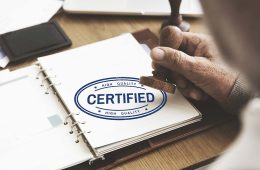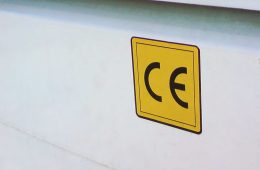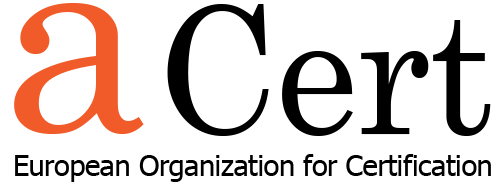how can we help you?
Contact us at the Consulting WP office nearest to you or submit a business inquiry online.
Having values, we offer strictly professional services and through the recognition and reputation of the A CERT, our associated companies and structures and strategic collaborators, we add value to the products, services, institutes and organizations giving them a competitive advantage and making them capable of achieving a dominant position in national and international level.

Certification System for Industry & Constructions

Introduction:
This article outlines a framework for a certification system ensuring compliance with industrial and construction standards.
Objectives:
- Promote quality and safety in industrial and construction practices.
- Enhance public confidence in the industry.
- Facilitate international trade through standardized products and processes.
Components:
1. Standardization Body:
- a CERT develops and maintains relevant standards.
- Stakeholders including industry experts, government agencies, and consumer representatives contribute to the standard development process.
2. Certification Bodies:
- Accredited organizations assess companies against the established standards.
- a CERT conduct audits, review documentation, and witness practices to ensure adherence.
3. Certification Process:
- Application: Companies seeking certification submit an application to a CERT.
- Documentation Review: Assessors review manuals, procedures, and quality control measures.
- Site Audits: a CERT Auditors conduct on-site inspections to verify compliance with standards.
- Corrective Actions: Identified non-conformances require corrective actions with verification by the certification body.
- Certification Granting: Upon successful completion, the company receives a certificate, valid for a specified period (typically 3 years).
Surveillance and Recertification:
- Regular surveillance audits ensure continued compliance throughout the certification validity period.
- Recertification after the validity period requires a full assessment to maintain certification status.
ISO Standards:
- ISO 9001: Quality Management System
- ISO 14001: Environmental Management System
- ISO 45001: Occupational Health and Safety Management System
- Industry-specific standards (e.g., American Society of Mechanical Engineers (ASME) for boiler and pressure vessel manufacturing)
Benefits:
- Increased Efficiency: Standardized processes minimize errors and rework.
- Improved Safety: Compliance with safety standards reduces workplace accidents.
- Enhanced Quality: Consistent product and service quality is ensured.
- Market Access: Certification facilitates participation in global markets.
- Credibility and Trust: Certification demonstrates commitment to quality and ethical practices.
Challenges:
- Cost: Certification processes involve costs associated with assessments and ongoing maintenance.
- Complexity: Understanding and implementing standards can be challenging for some companies.
- Bureaucracy: The system may require navigating complex administrative procedures.
A well-designed certification system plays a crucial role in driving quality, safety, and efficiency in the industrial and construction sectors. By adhering to established standards and obtaining relevant certifications, companies can gain a competitive edge, build trust with stakeholders, and contribute to a sustainable built environment.
Industry and Construction services
-

Quality Management System according to ISO 9001
Read moreCertification for a quality management system is no other than an official recognition of its actual implementation and introduces a competitive advantage for a company towards competition.
-

Environmental Management System according to ISO 14001
Read moreAn environmental management system according to ISO 14001:2015 includes all organizational structure, practices, procedures, sources and liabilities that a single company has to adopt
-

Information Technology Services Management System according to ISO 20000
Read moreInformation Technology Service Management System (ITSMS) according to ISO/IEC 20000. This standard applicable to any organization, large or small, in any sector or part of the world which relies on IT services.
-

Quality Management System for Medical Devices according to ISO 13485
Read moreA CERT certifies Quality Management Systems for the design, development, production, installation and service of products for Medical Devices according to ISO 13485:2003.
-

Occupational Health and Safety Management System according to ISO 45001
Read moreISO 45001 specifies requirements for an occupational health and safety (OH&S) management system, and gives guidance for its use, to enable organizations to provide safe and healthy workplaces by preventing work-related injury and ill health.
-

Information Security Management System according to ISO 27001
Read moreInformation Security Management System by ISO/IEC 27001:2005. A CERT certifies Information Security management systems according to the international standard ISO 27001:2005.
-

Tourism Sector Stuff
Read moreThe tourism industry is not only subject to specific tourism regulations, but also to regulations primarily designed for other areas, such as the environment, consumer protection, and the preservation of cultural and historical heritage.
-

Classification
Read moreGreece has a system for classifying hotels and other accommodations using a combination of stars and keys.
-

Organic and Natural Cosmetics
Read moreOrganic and natural certifications in cosmetics are key to communicating a commitment to sustainability.
-

Rapid Test Devices
Read moreHigh performance rapid test enables immediate treatment or isolation measures to minimize transmission. Accessible, easy-to-deploy, large-scale testing helps contain the virus spread.
-

Coronavirus SAFE
Read moreNew Certification Standards for Preventing and Treating Covid-19 Pandemics are presented by the Certification Body “A CERT European Certification Organization SA” having as its main concern the safety and health of consumers.
-

Management System according to GMP/GMP+
Read moreThe feed industry is an important part of the food chain since what animals eat plays a crucial role in the safety and quality of the food, we derive from them. The GMP+ certification system is precisely tailored to the animal feed industry.
-

CE Marking
Read moreCE marking is a mandatory conformity marking for products sold within the European Economic Area (EEA). It signifies that a product meets the EU’s health, safety, and environmental protection requirements.
-

Credit Risk Evaluation
Read moreIn cooperation with our strategic partners in Europe we offer evaluation services for Funding, Banks, Venture Capitals, Business Angels and Real Estate Industry in the following field according to international recognized standards
-

Asset Evaluation
Read moreIn cooperation with our strategic partners in Europe we offer evaluation services for Funding, Banks, Venture Capitals, Business Angels and Real Estate Industry in the following field according to international recognized standards as follows:
-

Cosmetics Good Manufacturing Practices (GMP) in compliance with ISO 22716
Read moreThe categories of certified cosmetics products covered by A CERT are the following:
a) Natural Cosmetic Product
b) Cosmetic Product Containing Organic Ingredients
c) Organic Cosmetic Product -

Due Diligence
Read moreDue diligence is an investigation, audit, or review performed to confirm facts or details of a matter under consideration. In the financial world, due diligence requires an examination of financial records before entering into a proposed transaction with another party.
-

European Union Regulation requirements for registration
Read moreEuropean Union Regulation requirements for registration
-

Business Continuity Management System according to ISO 22301
Read moreISO 22301 is the international standard for Business Continuity Management (BCM). Published by the International Organization for Standardization, ISO 22301 is designed to help organizations prevent, prepare for, respond to and recover from unexpected and disruptive incidents.
-

Analytical Laboratory Services
Read moreThe range of services covers: Allergens, Medicines, Dioxins, Genetically modified Organizations (GMOs), Microbiology, Plant, Toxins, Environmental
-

Quality & Quantity Inspection
Read moreAs methodologies and processes for determining the quality and quantity of agricultural commodities have evolved over the years, it is imperative to apply the most current standards and technologies.
-

Pre Shipment Inspection (PSI)
Read moreA pre-shipment inspection (PSI) is a quality control process that involves inspecting goods before they are shipped to ensure they meet the required quality standards and specifications.
-

Intellectual Property and Intangible Assets
Read moreIntellectual property is a general term for the set of intangible assets owned and legally protected by a company from outside use or implementation without consent.
-

Damage Assessment
Read moreDamage Assessment is the process for determining the nature and extent of the loss, suffering, and/or harm to the community resulting from a natural, accidental or human-caused disaster.
-

Intellectual Property
Read moreIntellectual property is a general term for the set of intangible assets owned and legally protected by a company from outside use or implementation without consent.



